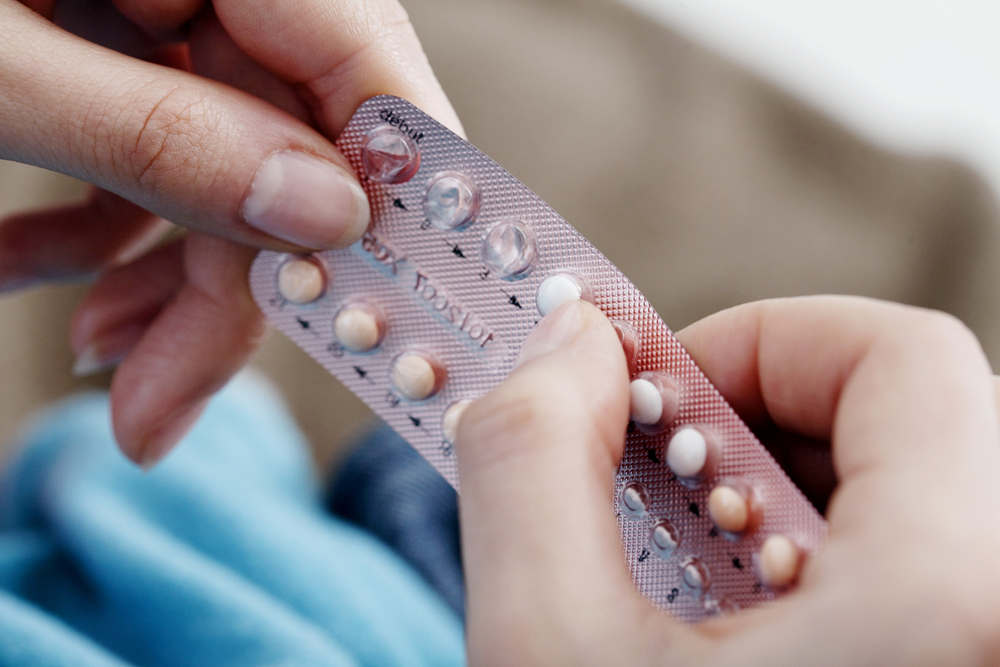In March I shared with you how planning was the key to my success and a few goals I wanted to set for the next three years: getting the abs of my dreams, spending more time at home, learning more and starting a family. The last goal in particular made me think about my group of girlfriends. For those of my friends with families, some struggled with fertility for a few years before getting pregnant, while others had happy surprises, and a few are still trying. Right now in my life I am dating, but I’m not ready to take that next step. So I’ve decided to stay on birth control. But, I do worry about fertility and if, when the time comes, I’ll be able to get pregnant. I’ve heard rumours over the years about what effects birth control may have on fertility and it was really important for me to get the bottom of these rumours and find out once and for all what my options are and how they affect my goals. I spoke with Toronto-based women’s health expert, Dr. Christine Palmay, to better educate myself of on the topic:
Sara Koonar: When is the right time to be on birth control?
Dr. Christine Palmay: The moment you are in a relationship and sex is a possibility you have to think ahead and talk to your family doctor. But, some people start birth control for other reasons: irregular periods, cycle control or painful periods.
What are some of the other benefits of the pill specifically?
Many pills in Canada have both estrogen and progesterone. Depending on the concentration of progesterone or estrogen, different pills have different good side effects. For example, skin and acne control, regulating your periods and making your periods lighter.
How long do you have to be on the pill for it to start taking effect?
Generally give any pill three months to stabilize in your system. In the first three months some people experience spotting or nausea. Those symptoms usually go away after that time period.
How long after using the pill can you start trying to get pregnant?
You can start right away. We generally recommend waiting one period. Just because when you get pregnant knowing the last day of your last period is really important for dating purposes.
Is it true that the longer you are on the pill the harder it is to get pregnant?
No, hormones do not cause infertility. That is the biggest myth about the pill. The problem is many of us start the pill when we are 16 and at that time we are not thinking about fertility. Then in our thirties when we meet someone or are ready to have a baby we go off the pill. We’ve been on the pill almost 15 years. Age is a big factor; at 30 you are less fertile than at 16. On top of that, the birth control pill is actually a treatment for a lot of conditions that may cause fertility concerns, like polycystic ovarian syndrome or endometriosis. You have women who are being treated for conditions they didn’t know they had because they were on the pill. In the case of endometriosis the pill is actually preserving fertility. You are already at a disadvantage because you are older in age and you come off the pill and you start seeing the symptoms of these conditions. Because of this, the pill gets blamed.
What are our other options besides the pill?
My job is to give you advice to make the best decision for you. You have to make a decision that is individualized and you need to be informed. The pill is the most commonly prescribed birth control in Canada because of habits. But, there are other options if you don’t like taking a pill or are busy and can’t keep to the schedule of a daily option. We have a patch and a ring; both contain progesterone and estrogen. The ring you leave in for 21 days and change it, and the patch you wear. Or there are IUDs “ hormonal and non-hormonal. Some people who can’t be on hormones because of health conditions “ blood clots or breast cancer “ non-hormonal is the only option for them. But, it doesn’t regulate your cycle or give you the positives of being on hormones. We have two IUDs in Canada with hormones: Mirena (you can keep in for up to 5 years) and Jaydess (you can keep in for up to 3 years). Most of the hormones in the IUD only act locally. So major side effects are mitigated. It is also hassle free. You don’t have to think about taking the pill at the same time every day. The major thing is the IUD is more effective. I know many people that get pregnant on the pill, not because it is not effective, but it is reliant on perfect usage. If the risk of an unwanted pregnancy is huge for you, the IUD may be the right choice.
For more information and to better educate yourself, Dr. Palmay suggested visiting sexualityandu.ca and of course speaking with your doctor.
What are your #3YearGoals? Leave a comment below or send me a tweet and let me know how you are planning your future.











